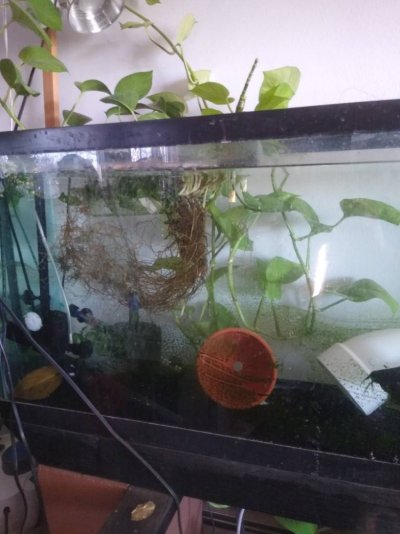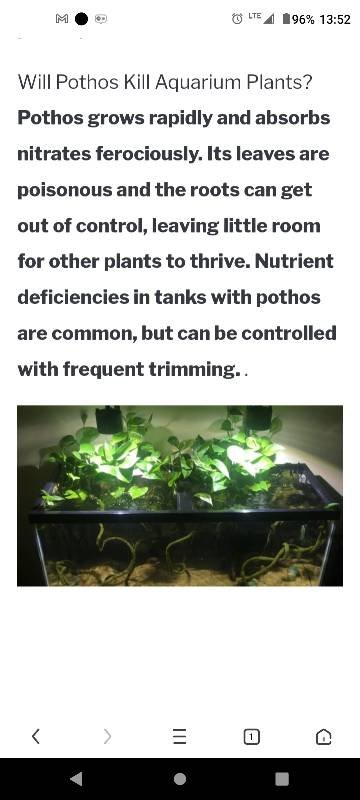amb25
Aquarium Advice Newbie
Hi, I'd appreciate any help I can get here 
I prepared some tap water yesterday for a water change on my 6g, planted, freshwater tank, 1 male betta. Now, I always test my water before my water change. I had ~0ppm ammonia, 0ppm nitrite, 0ppm nitrate.
For some reason, I decided to test my prepared tap water (+Seachem prime). API shows 2-4ppm ammonia, pH 7.2. I thought something was wrong with my test kit since those are pretty high ammonia levels in my drinking water, so I tested with bottled water. Bottled water showed 0ppm ammonia so the results were correct.
I had to go ahead with the water change since I had removed the water already from my tank, but I put my fish in a separate quarantine tank with bottled water. Today, I test my water in the morning (pH 7.2, ammonia 1.0-2.0 ppm, nitrite 0, nitrate 5ppm. This is very strange to me since I'm used to seeing 0 even after a week of bioload.
I'm very worried about my fish. At this point, I feel like I'll have to do daily water changes. What could have happened? I called 2 different local fish shops. One told me I had to double dose Prime. Another shop told me that as long as I was dosing with prime, my fish would be fine. I already lost a fish to ammonia poisoning once (although it was my fault as a beginner), so I'm terrified I'll hurt my fish and plants. Please, someone guide me on what to do. Will boiling the water help??
I prepared some tap water yesterday for a water change on my 6g, planted, freshwater tank, 1 male betta. Now, I always test my water before my water change. I had ~0ppm ammonia, 0ppm nitrite, 0ppm nitrate.
For some reason, I decided to test my prepared tap water (+Seachem prime). API shows 2-4ppm ammonia, pH 7.2. I thought something was wrong with my test kit since those are pretty high ammonia levels in my drinking water, so I tested with bottled water. Bottled water showed 0ppm ammonia so the results were correct.
I had to go ahead with the water change since I had removed the water already from my tank, but I put my fish in a separate quarantine tank with bottled water. Today, I test my water in the morning (pH 7.2, ammonia 1.0-2.0 ppm, nitrite 0, nitrate 5ppm. This is very strange to me since I'm used to seeing 0 even after a week of bioload.
I'm very worried about my fish. At this point, I feel like I'll have to do daily water changes. What could have happened? I called 2 different local fish shops. One told me I had to double dose Prime. Another shop told me that as long as I was dosing with prime, my fish would be fine. I already lost a fish to ammonia poisoning once (although it was my fault as a beginner), so I'm terrified I'll hurt my fish and plants. Please, someone guide me on what to do. Will boiling the water help??


